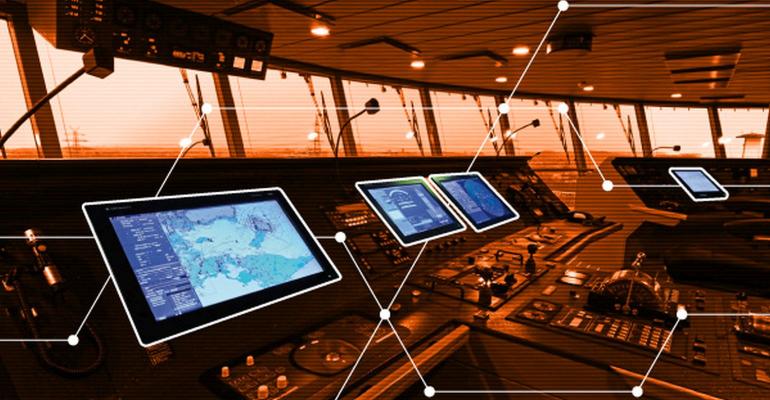Mackey, who also serves in a top spot at Scorpio Tankers has a lengthy background including both advanced graduate degrees and service as a Master Mariner in an oil major fleet. Rather than discussing Eneti’s recent announcement of a possible tie-up with Transocean, or prospects for MR tankers, his remarks took a much different tack with the talk on the future of maritime entitled “If you’re not confused, you should be”.
As the title implied Mackey’s remarks were a wide-ranging dialogue over the allotted half an hour.
On the subject of ship financiers, he offered that, for traditional bankers, lending to the maritime industry brings with it “a lot of headache but not a lot of reward”. He turned to the subject of alternative lenders, saying that: “the price of debt is going up” Chinese leasing structures, characterised by Mackey as “quite attractive now” and suggested that three years out, this is likely to remain the case.
On the subject of banks working towards social and environmental causes, he remarked, “I don’t think that is sustainable”. Responding to a question regarding the Poseidon Principles, he said, “they have been a great initiative…but it’s going to reach a ‘sell by’ date- it’s going to have to be revised…it doesn’t match up with the industry. The banks will have a decision about whether they want to participate”.
He added, “Talking from the point of view of a tanker owner, or a trans-shipping guy, I don’t think that those types of initiatives from the banks will stick….more and more the industry will depend on alternate sources of funding.”
This conversation led to a question from an insightful, but upset, member of the audience about how younger workers - “the next generation” - could be attracted to the shipping industry if it’s not participating in sustainability initiatives. “I think that the next generation is looking for a job… …right now we are in a pretty tight labour market… the pendulum on labor swings…recessions are not always bad things.” The cyclical theme surfaced throughout the talk.
Mackey turned his attention towards a pair of very hot topics - technology, and regulation. On the subject of data, he opined that: “The solutions that we are seeing are based on limited or corrupted data sets,” after noting that owners of data are often not willing to share it and therefore not providing vendors of products, including those with inner data crunching works infused with AI, with truly robust problem solving capabilities - due to lack of scale. He pointed out that software providers offering data driven decision making are working with limited, and therefore imperfect inputs.
Looking out several years into the future, he suggested that large ship managers and commercial managers, covetous of data, and in consolidation mode, would be growing in influence. On technology in the maritime sphere generally, he said “It could help profitability and safety…but the feedback that you get from a lot of users is that they don’t know how to use it or they don’t know what the inherent biases are or what it’s optimized for…We spend a lot of time thinking about what are the ingrained biases in the technology that we are using.”
On regulatory matters, the view was that “With the lack of regulatory clarity, nobody can make long term investments.” Echoing views heard widely as the IMO’s MEPC 80 draws closer - now just two months away, he asked, rhetorically, “Who wants to invest when you don’t know what the rules are going to be?” Pointing to the lack of clarity coming from the IMO and the complex web of regulatory efforts, he said, “local states, sovereigns and communities such as the EU…make their own rules”.
One observation made by Mackey in the regulatory discussion, “Complexity is a gentle force towards consolidation”, provides a hint of where the shipping marketplace may be heading. This view comes from actual front line experience- one need look no further than Scorpio Tankers, with a fleet of 100 plus vessels and Eneti, which has engaged in recent merger activity, to see this.
Copyright © 2024. All rights reserved. Seatrade, a trading name of Informa Markets (UK) Limited.
Add Seatrade Maritime News to your Google News feed.  |

